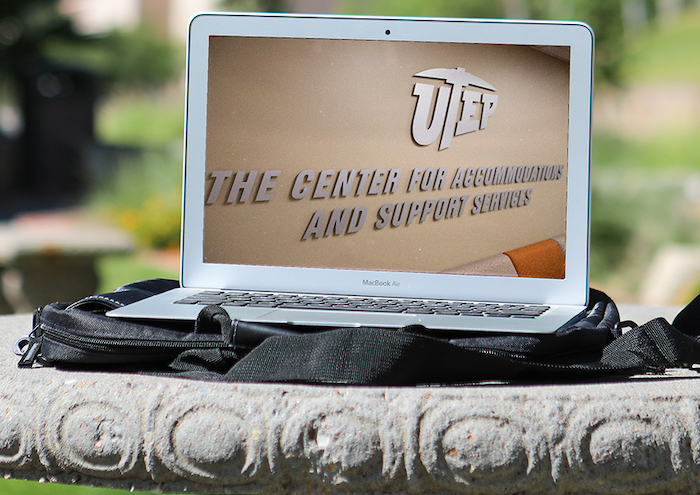
UTEP’s Center for Accommodations and Support Services Launches ‘Virtual Front Desk’
Last Updated on July 24, 2020 at 12:00 AM
Originally published July 24, 2020
By UC Staff
UTEP Communications
As the United States recognizes the 30th anniversary of the passage of the Americans with Disabilities Act on July 26, The University of Texas at El Paso continues to innovate its accommodations process to create a more inclusive environment where all students can thrive.

Earlier this month, UTEP's Center for Accommodations and Support Services (CASS) launched cassportal.utep.edu, the Accessible Information Management (AIM) system that serves as the office’s virtual front desk. Students with a disability or a temporary disability can request an accommodation through an easy-to-use system that initiates contact with a CASS staff member.
Traditionally, accommodation requests need to be updated each semester, but the new portal makes that process much more convenient for students and faculty.
“This software will help automate the process, and it’ll be easier for us to better serve the students,” said Charlie Gibbens, Ed.D., assistant vice president for student support, who oversees CASS.
The system initiates an individualized plan for each student. They start the process by logging in with their UTEP credentials and filling out an application with three questions:
- What is your disability?
- How does your disability impact you in educational environments?
- How did you hear about disability services?
After submitting the application, a CASS staff member books an appointment for a virtual interview to assess the student’s needs.
“The goal of the process is to give accommodations that are going to directly address the barriers you’re facing and help you be a success at UTEP,” CASS Director Angelica Martinez, Ph.D., said.
After the accommodations are determined by the student and CASS, notification letters are sent to the faculty members so they can directly start a conversation with the students.
The CASS staff members can easily see how many cases, including requests for note-taking and sign language interpretation, are in the system. The portal is also accessible for faculty members to review the accommodations requested by their students.
Martinez touts the individualized approach and attention given to each student. For example, students who have difficulty verbalizing their needs are able to upload any helpful documentation that might assist the process. They can also request different accommodations for different courses.
“How cerebral palsy impacts one person impacts someone else differently,” she said. “It’s meant to be a catalyst to starting a robust dialogue so that a person can really advocate for themselves and say, ‘This is how it affects me.’”
The approach is not one-size-fits-all, which means that CASS staff members and faculty maintain communication with students and assess the success of the accommodations.
“If the student is not successful, then we need to figure out what is going on,” Gibbens said.
Gibbens stressed the importance of students submitting their accommodation requests early, before the semester starts, so that they are in place throughout the semester. This also helps faculty determine how to help place students on a path for success. For example, if a student has difficulty concentrating while note-taking, an instructor might offer notes they already prepared.
“It is about the faculty understanding what the student’s needs are, and then working to meet those needs within the CASS guidelines,” Gibbens said.
Though the COVID-19 pandemic has a wide impact, CASS staff worked to avoid lapses in students’ established accommodations when distance learning began during the Spring 2020 semester. CASS was able to include different testing specifications, requirements and times through Blackboard, all while launching the AIM portal.
"Although normally we wouldn't assign note-takers in an online class, we're making an exception for spring, summer and fall to provide those note-takers if instructors might be utilizing an online format, maybe livestreaming," Martinez said.
CASS will also be available to process accommodations as a result of COVID-19 and its related illnesses.
Despite the circumstances, their mission to promote student success remains.
“CASS is not about making modifications for a class, they’re about making an accommodation so that the student can be successful,” Gibbens said. “They don’t change the academic class or the academic coursework. This can include allowing a little extra time for tests, or have somebody to help with note-taking or memory aid, but the rigor is still there.”
Students with questions are encouraged to email cass@utep.edu.
